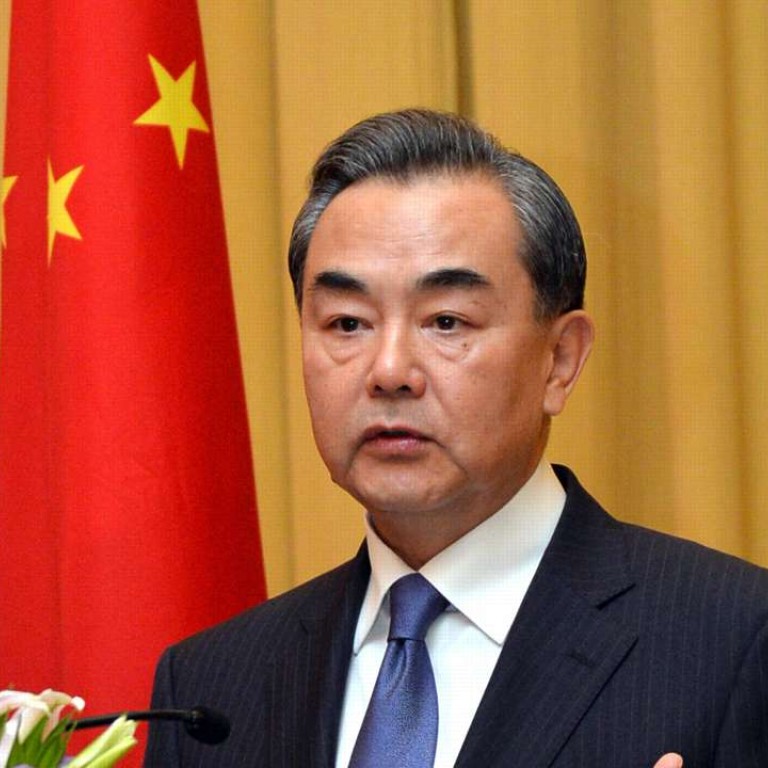
China woos rival claimant Brunei as it seeks allies ahead of tribunal ruling on territorial disputes in South China Sea
Foreign Minister Wang Yi says the small nation shares Beijing’s view that disputes should be resolved through direct negotiations. An international tribunal is due to rule shortly on territorial claims in the disputed region
China says Brunei has endorsed its approach to resolving territorial disputes in the South China Sea, just weeks before a key ruling by an international court.
Foreign Minister Wang Yi said on Thursday during a visit to Brunei – a rival claimant in the sea – that the two countries had agreed maritime disputes should be resolved only between those nations directly involved – and that any interference from other nations should be resisted.
The remarks come as Beijing steps up diplomatic efforts ahead of a ruling by the Permanent Court of Arbitration in The Hague on a challenge by the Philippines to China’s claims in the sea.
The ruling, due in late May or early June, is widely expected to favour the Philippines. However, China has rejected the panel’s authority and has been seeking allies to contest the ruling.
Wang reiterated the importance of a “dual-track approach” in resolving disputes over the sea.
The approach, put forward by Wang two years ago, requires not only that territorial disputes should be addressed solely by those nations directly concerned, but also that peace and stability in the region should be maintained by China and the Association of Southeast Asian Nations (Asean).
“It is the most pragmatic and feasible way to a proper solution for the South China Sea issue,” he said.
The approach has met with resistance from claimants including Vietnam and Malaysia who see the United States as a security ally.
Wang Yong, a professor of international studies at Peking University, said Brunei’s endorsement was an important success for Beijing, which was keen to alleviate mounting diplomatic pressure ahead of the court ruling.
Warning against continued opposition to China’s approach, the foreign minister said the interests of Asean countries and regional stability risked being undermined by a “certain nation outside the region” – an apparent reference to US naval support for some of China’s rival claimants.
Brunei, with a population of about 400,000, is the smallest country to have overlapping claims with China in the sea.
In a bid to woo the oil-rich nation, the minister pledged to expand economic ties. Chinese investment in Brunei increased by half in 2015 from 2014, while the value of China’s contracted projects increased 50-fold in the same period, the minister said.
Wang Yong of Peking University said Beijing’s use of economic incentives with less-developed neighbours was part of its diplomatic strategy.
China plans to incorporate Brunei into its “One Belt, One Road” strategy to increase trade ties and to increase tourism and other exchanges.
“A growing and stronger China would bring no challenges or threats to surrounding smaller countries, but more opportunities and benefits,” the minister said.
The minister also visited Cambodia, which enjoys large amounts of aid and investment from China. The ministry said Cambodia also backed Beijing’s stance on resolving the disputes.

